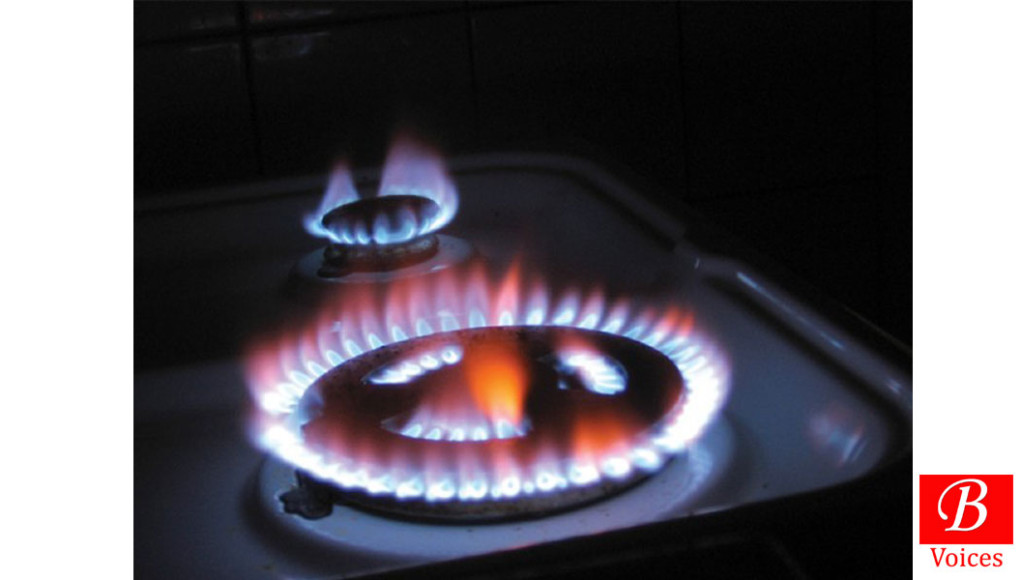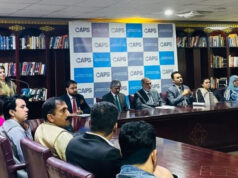Adnan Aamir
On a freezing day in the first week of February, Mateen* planned to stay at home and enjoy the holiday with his family.
After breakfast, he was chatting with his family members in their drawing room with a gas heater on. Suddenly, gas supply ended and Mateen and his family of seven reached for their blankets to protect themselves from the cold.
Gas supply was not restored for another four hours. Mateen did not know about the four-hour suspension because no prior notice had been issued. The family suffered on this cold day – they could not cook food and barely kept themselves warm the whole day.
Mateen lives in Sariab area, south of Quetta. This area has one of the largest population settlements in Quetta and is also a place where there is low gas pressure.
What Mateen and his family suffered due to the unscheduled suspension of gas supply are what most people in Quetta face during winter.
Balochistan and Sindh are supplied gas by Sui Southern Gas Company (SSGC). It is a public company but the government owns the majority of the shares and completely controls the affairs of this company. The SSGC has a network of transmission pipelines spread over 3,614 kilometers in Balochistan and Sindh. With total assets worth Rs277 billion, the SSGC is the leading gas distribution company in Pakistan.
SSGC has not taken notice of these complaints or issued any explanation on this matter. There is also no clarity on the official policy on changing old gas meters
The SSGC is named after Sui, a town in Dera Bugti district of Balochistan, from where the first gas field in Pakistan was discovered in the 1950s. For the next three decades, gas fields in Dera Bugti supplied gas to the entire country, but not to Balochistan. In the 1980s, gas transmission lines finally reached Quetta city and even today only a handful of districts in the province have a proper gas supply. Even those districts do not get sufficient supply in winter when temperatures fall below zero degree Celsius.
Amjad* was leaving his home on Sariab Road for work early in the morning in January. In the street, he saw SSGC personnel taking down old meters and replacing them with new ones. Since he was late for work, he ignored the meter change and rushed away.
He forgot about the episode because of his busy work day. However, a few weeks later, he was shocked to receive a gas bill of Rs35,000. Details of the bill showed that Amjad had been penalized a hefty sum of Rs25,000 for having a slow gas meter. The huge bill completely disturbed Amjad’s monthly budget and he was left penniless as a result.
It has become a normal practice by the SSGC to change old meters and replace them with new ones every few years. The new meters drop units very quickly and as a result, gas bills become inflated and are not affordable. There have been numerous protests against the installation of these meters in Quetta by citizens.
However, the SSGC has not taken notice of these complaints or issued any explanation on this matter. There is also no clarity on the official policy on changing old gas meters. Citizens alleged that the SSGC deliberately installs “fast-moving meters” to collect more revenue but the SSGC does not respond to these allegations.
Every winter, the people of Quetta protest against the problem of low gas pressure. Even if gas is being supplied, the pressure is so low, it makes cooking or other domestic chores impossible.
As a result, people buy gas cylinders from the market to fulfill their domestic fuel needs. Despite the frequent protests, no concerted effort has been made to resolve the problem.
The reason for the crisis is simple: the SSGC does not efficiently and sufficiently cater to the gas needs of the people of the city. It gets extremely cold in Quetta in winter and the demand for gas increases. However, supply is not increased in the same proportion, and it results in shortage. Posh areas of Quetta still get better gas supply, and it is mostly people like Mateen who live in middle class and working class neighborhoods who suffer.
According to the SSGC website, the total capacity of the Quetta pipeline is 206 million standard cubic feet per day (MMSCFD) and it only receives 88 MMSCFD. This means that the gas was capitalized at a capacity of just 40 percent. On the other hand, the Indus Left bank pipeline system, providing gas to Sindh, is working at 122 percent capacity utilization – supplying more gas then its standard capacity.
Safdar Hussain, deputy manager for media relations at SSGC, claimed that capacity utilization of SSGC’s Quetta pipeline system is 95 percent and not 43 percent. “The SSGC Quetta is getting gas supply according to the demand of customers of Balochistan.”
He added that during the current month, Quetta has been getting gas in the range of 200.27 to 216.92 MMCFD. Hussian’s claims do not match with the details of gas supply on the website of SSGC.
Answering a question about installing new meters, he said the SSGC had its own meter manufacturing plant. “These meters are being utilized across Sindh and Balochistan,” he toldThe Friday Times.
Balochistan, despite being the province which produces gas, suffers from problems of low pressure and overbilling. The primary reason for this is that there is no control of the province on SSGC. This company is managed by an 11-member board of directors, of which the only one belongs to Balochistan – a token representation.
Therefore, the Balochistan government should press for increasing its representation in the SSGC board. At least half the board of the SSGC should comprise of people from Balochistan. Likewise, not one member of the Oil and Gas Regulatory Authority (OGRA) is from Balochistan. This means that the OGRA is also not too enthusiastic about addressing complaints of Balochistan against the SSGC.
Chief Minister Jam Kamal had served as state minister for petroleum and natural resources for five years in the previous government. He should be able to understand such problems. Balochistan’s government needs to bring up this issue in the Council of Common Interests (CCI) and urge the federal government to increase its representation in both the SSGC and OGRA.
*Names have been changed to protect identities.
Originally published in The Friday Times
Share your comments!








